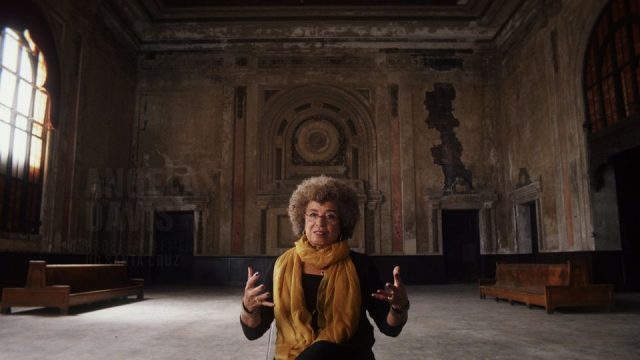I was purposefully holding this movie off until after the election because director Ava Duvernay holds absolutely no punches in this film, and holds politicians and political parties accountable for their past and present actions. There are segments in this film that are critical of both parties, and, when cherry picked, can be (and have been) used as ideological propaganda that misses the point of the movie. But now? It’s required viewing. Perhaps more than ever.
13th is an angry and sobering primer on America’s systemic oppression of the black population from plantation slavery through Jim Crow to modern incarceration. The title 13th comes from the 13th Amendment to the Constitution, better known the one that freed the slaves. While it freed the slaves from being owned by individuals and companies, it has a loophole in it – except as a punishment for crime whereof the party shall have been duly convicted – which allows for a different type of legalized oppression and has been weaponized in America.
For the first hour, Duvernay connects the dots of the eras of oppression in chronological order. Running from the 1800s through the 1990s, she careens through the eras with a mixed media format that blends talking heads, archival photos and videos, and illustrated rap lyrics to create a story of how each time a problem seems to get fixed, it merely morphs into a different type of oppression. No matter how much you know, seeing all the different parts in chronological order adds to the weight of the situation.
Duvernay loses her path in the 1990s, and begins doubling back and forth in the time line like a DJ scratching a record. Groups formed in the 1970s passed laws that would come to fruition in the 1990s and 2000s. Corporations begin to invade the narrative and pull it out of itself. Political parties eat themselves, and the editing forms a gigantic knot of information that has little of the ease of the first half of the documentary.
As the narrative gets more complicated, the number of talking heads increases. During this section, Duvernay gets a lot of talking heads, and interrogates their talking points. Not only does Duvernay get a bunch of black historians, politicians and activists (Angela Davis), she nails interviews with a bunch of white politicians and lobbyists (Newt Gingrich, Grover Norquist). Surprisingly, some of them say some very smart and poignant things among some of the bullshit. Through the conflicting narratives, the gigantic knot becomes a diagram of a system that incarcerates so much of the impoverished public in America.
Duvernay has said this isn’t propaganda, but she pulls no punches from either of this year’s presidential candidates. She criticizes the Clintons for participating in the 1994 Crime Bill with no apologies, and then creates a montage of Trump’s firebrand law and order speeches intercut with Civil Rights era footage and Richard Nixon. There is to be no complacency regardless of who wins.
Though the documentary format for such a broad topic is necessarily shallow, it provides a thorough primer for those who need to be updated on the matters of the police state. Duvernay provides no solutions, nor does she presume to have the answers. That’s not what 13th is about. Instead, it’s a great primer fit for a 2-day workshop in high school history class and to keep refreshed on the topic. Watch it and stay aware.
13th streams on Netflix

